CarderPlanet
Professional
- Messages
- 2,549
- Reaction score
- 723
- Points
- 113
Part 1
Secure your crypto money! Today I will tell you how to correctly store cryptocurrency so that it will never be stolen from you!
Introduction
It is obvious that cryptocurrency has already taken a certain place in the life of each of us. Not keeping at least a little of your funds in the crypt is at least infantile and at the most a very big mistake that will come back to haunt in the future. Fiat does not last forever, at the same time, no one guarantees that the crypt will completely take its place. Therefore, you need to correctly distribute your assets. Keep part of the money in fiat, part in crypt, and another part in gold or stocks. And then everything will definitely be ok. But today's post is not about financial literacy. Today we are talking about security. The security of your crypt. So read carefully and remember.
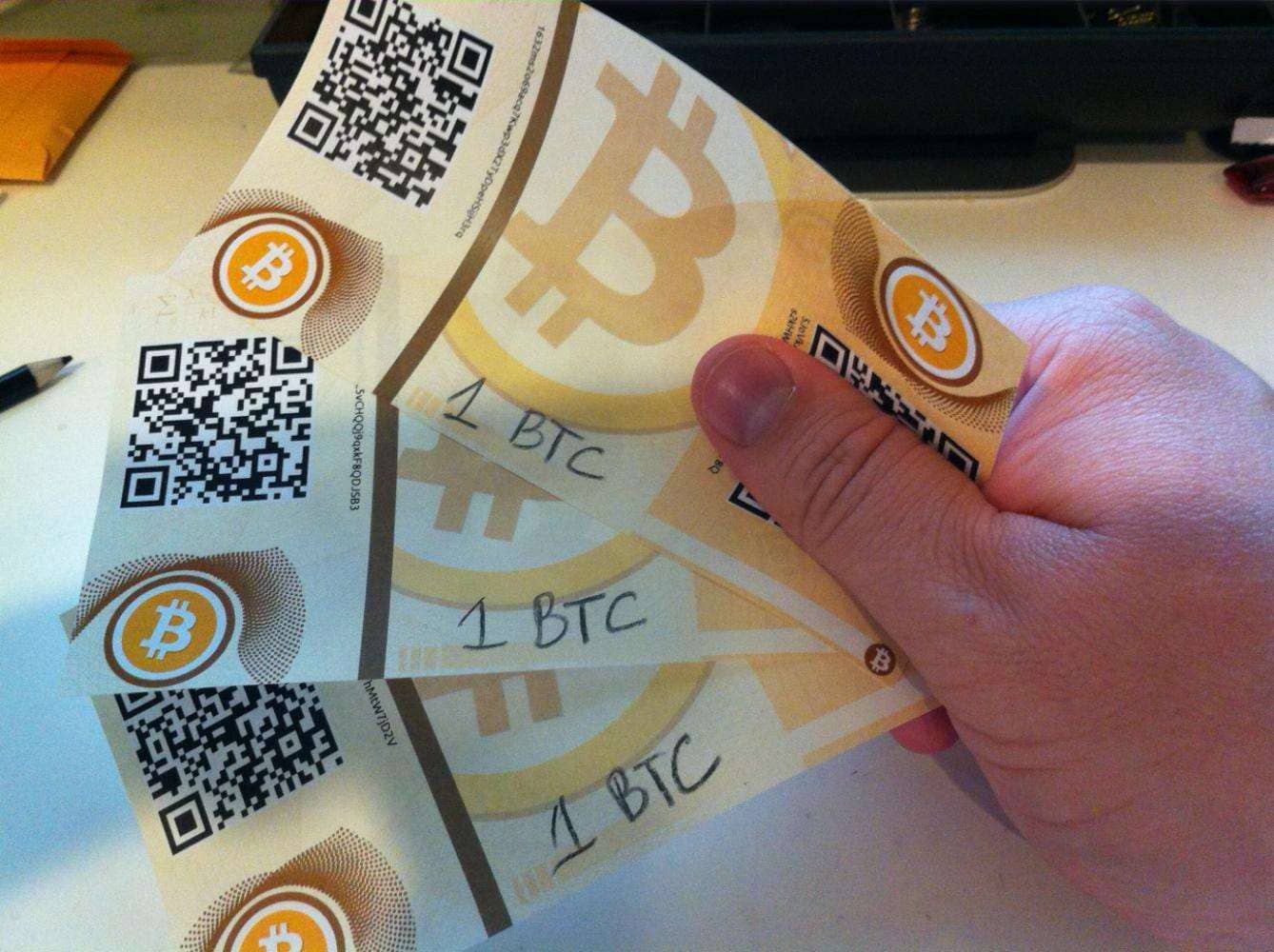
Wallet
In general, keeping the crypt is a real pain. With ordinary money, everything is simple. I put the money in a safe, or in a bank account, and they are relatively safe. But what about all these non-custodial, custodial, exchange and cold wallets? The devil will just break his leg. Therefore, I explain.
P.S.. I will not advertise wallets, google it yourself.

Exchanges
The dumbest way to store cryptocurrency is to keep it on an exchange. Although, at the same time, this is the most convenient of the ways. In reality, our acquaintance with crypto always begins with the exchange. There we buy it, wait until it grows and then withdraw it to fiat. But most people either do not know or stupidly forget the fact that not only fiat can be withdrawn from the exchange, but also the coins themselves. Storing your savings on the exchange is risky. Point. Yes, there is a two-factor, but it is far from a panacea. You can be hacked and easily hijacked by all funds, as in the story from our recent post. Therefore, we only store a small part of the money on the exchange, which we need in the short term. This is, for example, if you are trading. If you just play your cue ball, then you need to withdraw it from the exchange.

Wallets
How does a crypto wallet work? It has two keys. Open - the addresses of the wallet to which money is sent. (Login) And private - the security key for accessing the wallet. (Password). Plus there is also a Seed-phrase. This is a set of 12 random words and this is the most important thing in a crypto wallet. With the help of a seed phrase, you can recover your password, so, roughly speaking, the security of a seed phrase is the safety of your money.

Custodian
All crypt wallets can be divided into two large types. Custodial and non-custodial. In simple terms, custodial wallets are the same as a bank account. (These are wallets on exchanges, or online wallets). That is, you interact with an intermediary - a wallet manufacturer. The company has access to your password and, in fact, all coins are in its complete control. But this way you will not worry about forgetting your password or seed. The money can be recovered by verifying the identity by verifying the digital signature. But again, if something happens to the company, you can say goodbye to your hard-earned money. Further - non-custodial. Here the key to the wallet is stored only by you and only you are responsible for it. It's hard to say which wallets are better. In terms of security, of course, they are non-custodial.
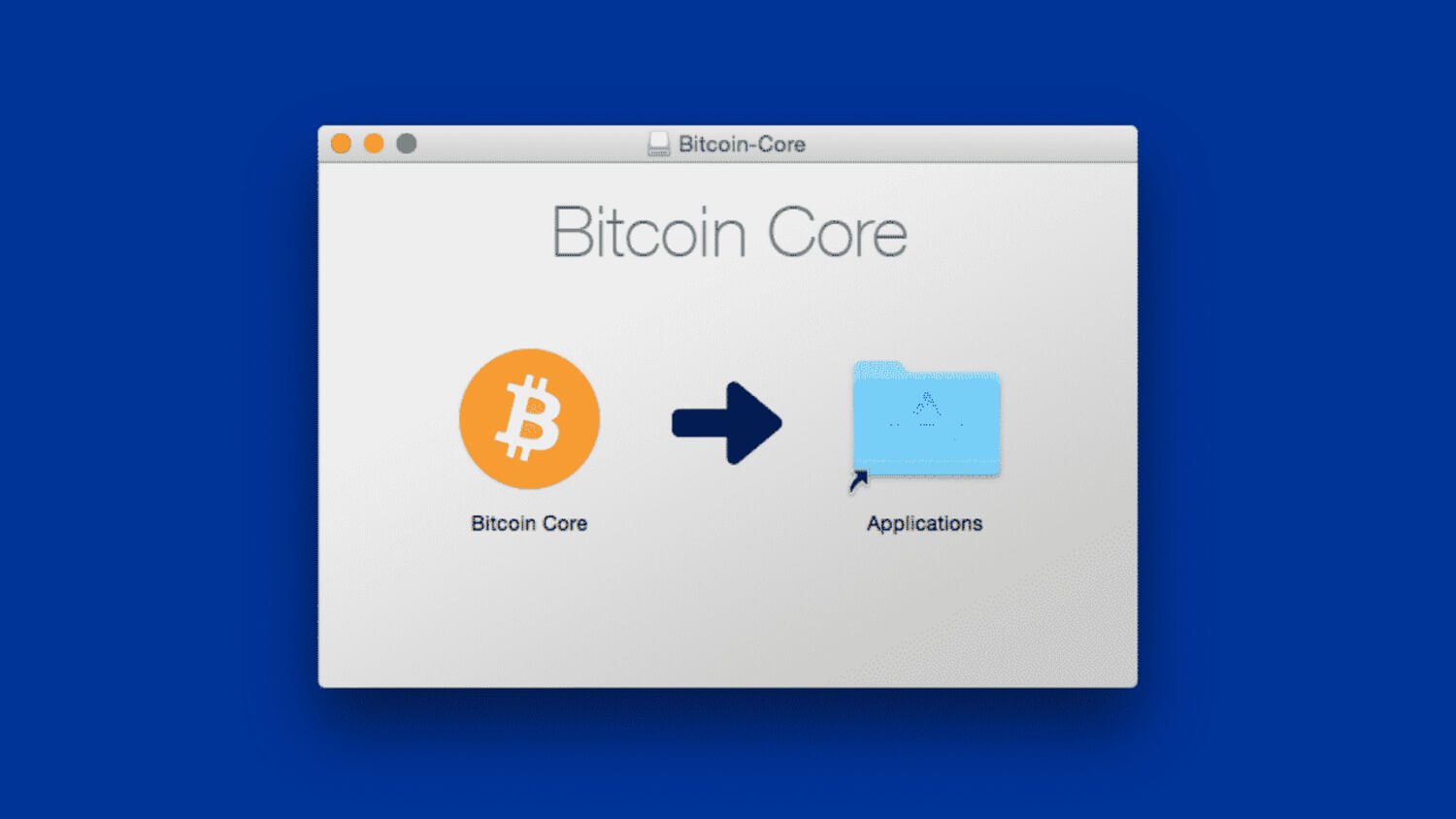
Hot
Now for the form. There are cold (offline) and hot (online) wallets. The simplest wallets are online wallets like MetaMask, which are simply browser extensions. They are fast, user-friendly and with a nice interface. True, in terms of security, everything is weak here. Roughly the same with stock exchanges. Phishing, jailbreaking your device or your accounts can rob you of your savings. Therefore, in such wallets it is worth keeping only a small part of the funds for everyday use. Next - software wallets. A slightly safer way of storing crypto, since to hack such a wallet, you will need access to the device. These are desktop or mobile applications that need to be downloaded. The main thing when working with such wallets is to reliably hide the key and seed phrase. This can be done as follows. For example, print QR codes with keys on a piece of paper and put somewhere in a safe. (This type of storage is also called a paper wallet. Another way is to hide the codes in some encrypted folder on a separate device. But about such subtleties in the next post. will download the entire blockchain.This is not an option for the average user due to its size.
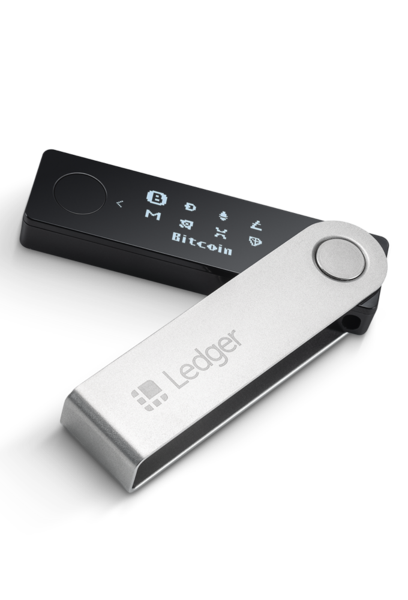
Coldly
It is believed that the safest way to store crypto is with a cold wallet. This is a USB flash drive, computer hard drive, or a whole laptop without access to the Internet and with its own software sharpened for storing crypts. Usually, by "cold" wallet, we mean Ledger devices, but even such crypto-flash drives will not provide you with complete security. Manufacturing companies are also not perfect, they have data leaks, and there have been cases of hacking of such devices. Nevertheless, it is a fairly safe, albeit imperfect option.

Outcome
Well, the post was a little too long, so I decided to split it into two parts. Now you know what crypto wallets are, and tomorrow we will figure out how to correctly, and which of them should be used. I will also tell you how I personally distributed my crypto assets. That's all for me, I wish your money safety.
Part 2
I'm paranoid! Security paranoid. Agree, losing all your savings due to a weak password is not the most pleasant thing. Therefore, today I will tell you about my principles of storing cryptocurrency, which you can safely adopt.
Diversification
The most important principle that I strongly advise everyone is the good old adage "do not store all your eggs in one basket." In general, all my crypto assets can be divided into three parts - a crypto for daily operations, a crypto for speculation and a gold reserve. What does it mean? The first is the products I use every day. The money for which I partly live, make various purchases, etc. The second is my medium-term investment portfolio. A kind of trading. I buy Bitcoin and other alts when they are in deep additive, wait for a certain time and sell when the price has risen significantly. (Example: bought when the cue ball was 30k and sold everything when the price rose to 45k). Well, the last third part is my pension. Money that I never touch and do nothing with, with hope, that Bitcoin will someday be worth under a million. I only accumulate this part of my funds, periodically saving part of my earnings here. In percentage terms, they can be depicted as follows (10% - daily transactions, 40% - investments, 50% - long-term savings). And for each part of my cryptoassets, I use different storage methods.

Spender
As for the daily transactions. Yesterday I told you that keeping money on stock exchanges is stupid, nevertheless, stock exchanges are my conditional wallets. Why is this okay? Firstly, as I said earlier, I only keep 10% of my funds on exchanges. Secondly, I do not keep all this money, not only on one account, but not even on one exchange. I have now roughly calculated and at the moment I have 7 accounts on 5 different exchanges. All on clean phone numbers, verified mails (protonmail), etc. Plus, for all operations, I use a separate clean computer with a completely virgin OS, on which I have never installed anything. With VPN, firewall and everything you can. This device is exclusively for crypto transfers and work with wallets. Another important plus of exchanges. They are comfortable. Easily convert any crypt and transfer it in a couple of clicks. In general, given my level of diversification, the two-factor approach suits me perfectly. Here, separately, for a very long time, you can talk about the nuances of working with exchanges - a separate clean number, reliable mail, password selection and storage, protection from malware and all other factors that may affect the safety of your funds on the exchange wallet. More on this another time. In general, based on such considerations, you can use both the web and any software wallets. There is already an amateur. You just need to remember that all wallets with access to the Internet are somehow vulnerable. protection against malware and all other factors that may affect the security of your funds in the exchange wallet. More on this another time. In general, based on such considerations, you can use both the web and any software wallets. There is already an amateur. You just need to remember that all wallets with access to the Internet are somehow vulnerable. protection against malware and all other factors that may affect the security of your funds in the exchange wallet. More on this another time. In general, based on such considerations, you can use both the web and any software wallets. There is already an amateur. You just need to remember that all wallets with access to the Internet are somehow vulnerable. protection against malware and all other factors that may affect the security of your funds in the exchange wallet. More on this another time. In general, based on such considerations, you can use both the web and any software wallets. There is already an amateur. You just need to remember that all wallets with access to the Internet are somehow vulnerable. protection against malware and all other factors that may affect the security of your funds in the exchange wallet. More on this another time. In general, based on such considerations, you can use both the web and any software wallets. There is already an amateur. You just need to remember that all wallets with access to the Internet are somehow vulnerable.

Speculator
So, as you already know, I have a separate computer for the crypt, which connects to the Internet a maximum of once every couple of months to carry out key transfers. With its help, I purchase my investment portfolio, which is then sent to the cold wallet. This should be done in the case of Cue Ball, Ether and other strong alts. Low-liquid shitcoins can generally be held on exchanges or other online wallets. As for the coldest wallet, I settled on Ledger. There is one important nuance here. It cannot be bought from the Internet, but only offline, in the store of an official representative. But again, I don't recommend storing everything on a hardware wallet. Better to buy a couple. Well, if you really like to bother and do not trust the company to the manufacturer, you can write the wallet to a USB flash drive or memory card. But in my opinion,
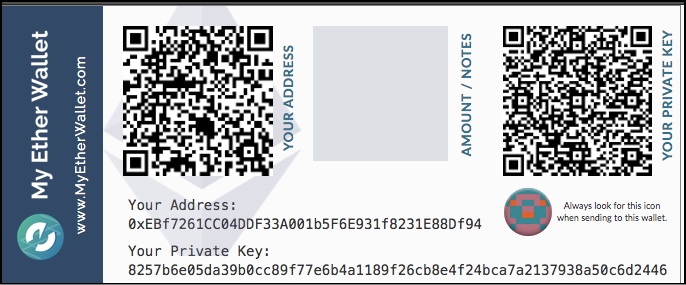
Retiree
Well, and most importantly - funds for a rainy day. Saving. For them, I have selected the safest (in my opinion) and conservative storage method. This is a paper wallet. The bottom line is what. To create it, you need a one-time internet connection. Go to bitaddress, generate keys and print them on a piece of paper. Then transfer coins to this address and hide the piece of paper in a safe place. But ... there should be several papers and they need to be stored in different places. One is under my grandmother's pillow, one is in the safe, and one is in a safe deposit box. And for greater reliability, it is worth creating such a paper wallet in a safer way. This is the creation of a wallet offline through an OS on a USB flash drive and a preinstalled bitaddress. You can find materials about this in the public domain.
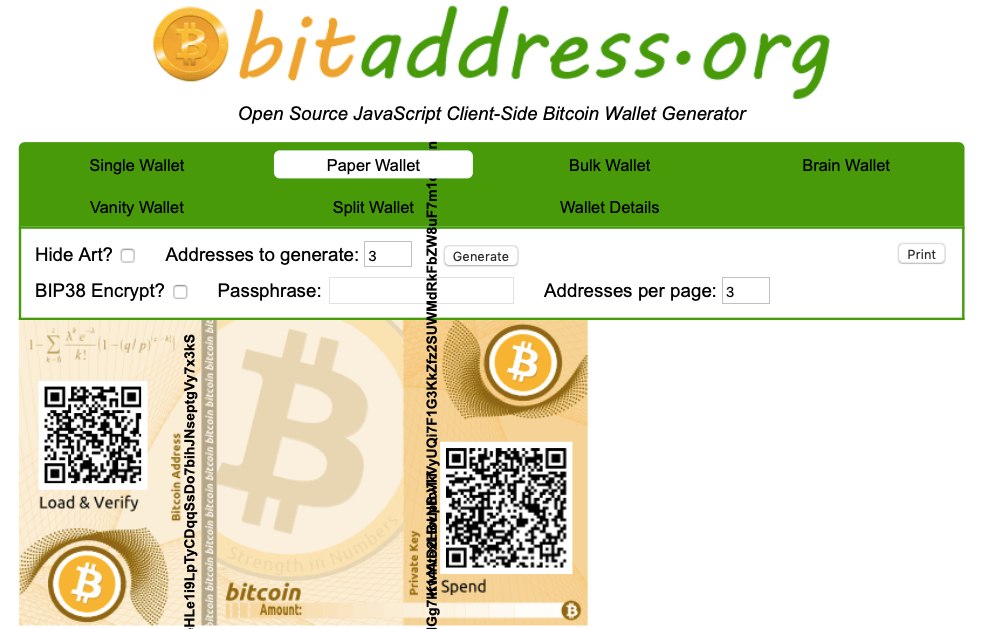
Outcome
We store a small part of the crypt on not the most secure web wallets or exchanges. We perform our routine operations there. Most of the funds should be in cold or paper wallets, and different ones. P.S. The topic is extensive, so I will write about safe work with cryptocurrencies more than once, as the topic becomes more and more relevant every year.
Secure your crypto money! Today I will tell you how to correctly store cryptocurrency so that it will never be stolen from you!
Introduction
It is obvious that cryptocurrency has already taken a certain place in the life of each of us. Not keeping at least a little of your funds in the crypt is at least infantile and at the most a very big mistake that will come back to haunt in the future. Fiat does not last forever, at the same time, no one guarantees that the crypt will completely take its place. Therefore, you need to correctly distribute your assets. Keep part of the money in fiat, part in crypt, and another part in gold or stocks. And then everything will definitely be ok. But today's post is not about financial literacy. Today we are talking about security. The security of your crypt. So read carefully and remember.

Wallet
In general, keeping the crypt is a real pain. With ordinary money, everything is simple. I put the money in a safe, or in a bank account, and they are relatively safe. But what about all these non-custodial, custodial, exchange and cold wallets? The devil will just break his leg. Therefore, I explain.
P.S.. I will not advertise wallets, google it yourself.

Exchanges
The dumbest way to store cryptocurrency is to keep it on an exchange. Although, at the same time, this is the most convenient of the ways. In reality, our acquaintance with crypto always begins with the exchange. There we buy it, wait until it grows and then withdraw it to fiat. But most people either do not know or stupidly forget the fact that not only fiat can be withdrawn from the exchange, but also the coins themselves. Storing your savings on the exchange is risky. Point. Yes, there is a two-factor, but it is far from a panacea. You can be hacked and easily hijacked by all funds, as in the story from our recent post. Therefore, we only store a small part of the money on the exchange, which we need in the short term. This is, for example, if you are trading. If you just play your cue ball, then you need to withdraw it from the exchange.

Wallets
How does a crypto wallet work? It has two keys. Open - the addresses of the wallet to which money is sent. (Login) And private - the security key for accessing the wallet. (Password). Plus there is also a Seed-phrase. This is a set of 12 random words and this is the most important thing in a crypto wallet. With the help of a seed phrase, you can recover your password, so, roughly speaking, the security of a seed phrase is the safety of your money.

Custodian
All crypt wallets can be divided into two large types. Custodial and non-custodial. In simple terms, custodial wallets are the same as a bank account. (These are wallets on exchanges, or online wallets). That is, you interact with an intermediary - a wallet manufacturer. The company has access to your password and, in fact, all coins are in its complete control. But this way you will not worry about forgetting your password or seed. The money can be recovered by verifying the identity by verifying the digital signature. But again, if something happens to the company, you can say goodbye to your hard-earned money. Further - non-custodial. Here the key to the wallet is stored only by you and only you are responsible for it. It's hard to say which wallets are better. In terms of security, of course, they are non-custodial.

Hot
Now for the form. There are cold (offline) and hot (online) wallets. The simplest wallets are online wallets like MetaMask, which are simply browser extensions. They are fast, user-friendly and with a nice interface. True, in terms of security, everything is weak here. Roughly the same with stock exchanges. Phishing, jailbreaking your device or your accounts can rob you of your savings. Therefore, in such wallets it is worth keeping only a small part of the funds for everyday use. Next - software wallets. A slightly safer way of storing crypto, since to hack such a wallet, you will need access to the device. These are desktop or mobile applications that need to be downloaded. The main thing when working with such wallets is to reliably hide the key and seed phrase. This can be done as follows. For example, print QR codes with keys on a piece of paper and put somewhere in a safe. (This type of storage is also called a paper wallet. Another way is to hide the codes in some encrypted folder on a separate device. But about such subtleties in the next post. will download the entire blockchain.This is not an option for the average user due to its size.

Coldly
It is believed that the safest way to store crypto is with a cold wallet. This is a USB flash drive, computer hard drive, or a whole laptop without access to the Internet and with its own software sharpened for storing crypts. Usually, by "cold" wallet, we mean Ledger devices, but even such crypto-flash drives will not provide you with complete security. Manufacturing companies are also not perfect, they have data leaks, and there have been cases of hacking of such devices. Nevertheless, it is a fairly safe, albeit imperfect option.

Outcome
Well, the post was a little too long, so I decided to split it into two parts. Now you know what crypto wallets are, and tomorrow we will figure out how to correctly, and which of them should be used. I will also tell you how I personally distributed my crypto assets. That's all for me, I wish your money safety.
Part 2
I'm paranoid! Security paranoid. Agree, losing all your savings due to a weak password is not the most pleasant thing. Therefore, today I will tell you about my principles of storing cryptocurrency, which you can safely adopt.
Diversification
The most important principle that I strongly advise everyone is the good old adage "do not store all your eggs in one basket." In general, all my crypto assets can be divided into three parts - a crypto for daily operations, a crypto for speculation and a gold reserve. What does it mean? The first is the products I use every day. The money for which I partly live, make various purchases, etc. The second is my medium-term investment portfolio. A kind of trading. I buy Bitcoin and other alts when they are in deep additive, wait for a certain time and sell when the price has risen significantly. (Example: bought when the cue ball was 30k and sold everything when the price rose to 45k). Well, the last third part is my pension. Money that I never touch and do nothing with, with hope, that Bitcoin will someday be worth under a million. I only accumulate this part of my funds, periodically saving part of my earnings here. In percentage terms, they can be depicted as follows (10% - daily transactions, 40% - investments, 50% - long-term savings). And for each part of my cryptoassets, I use different storage methods.

Spender
As for the daily transactions. Yesterday I told you that keeping money on stock exchanges is stupid, nevertheless, stock exchanges are my conditional wallets. Why is this okay? Firstly, as I said earlier, I only keep 10% of my funds on exchanges. Secondly, I do not keep all this money, not only on one account, but not even on one exchange. I have now roughly calculated and at the moment I have 7 accounts on 5 different exchanges. All on clean phone numbers, verified mails (protonmail), etc. Plus, for all operations, I use a separate clean computer with a completely virgin OS, on which I have never installed anything. With VPN, firewall and everything you can. This device is exclusively for crypto transfers and work with wallets. Another important plus of exchanges. They are comfortable. Easily convert any crypt and transfer it in a couple of clicks. In general, given my level of diversification, the two-factor approach suits me perfectly. Here, separately, for a very long time, you can talk about the nuances of working with exchanges - a separate clean number, reliable mail, password selection and storage, protection from malware and all other factors that may affect the safety of your funds on the exchange wallet. More on this another time. In general, based on such considerations, you can use both the web and any software wallets. There is already an amateur. You just need to remember that all wallets with access to the Internet are somehow vulnerable. protection against malware and all other factors that may affect the security of your funds in the exchange wallet. More on this another time. In general, based on such considerations, you can use both the web and any software wallets. There is already an amateur. You just need to remember that all wallets with access to the Internet are somehow vulnerable. protection against malware and all other factors that may affect the security of your funds in the exchange wallet. More on this another time. In general, based on such considerations, you can use both the web and any software wallets. There is already an amateur. You just need to remember that all wallets with access to the Internet are somehow vulnerable. protection against malware and all other factors that may affect the security of your funds in the exchange wallet. More on this another time. In general, based on such considerations, you can use both the web and any software wallets. There is already an amateur. You just need to remember that all wallets with access to the Internet are somehow vulnerable. protection against malware and all other factors that may affect the security of your funds in the exchange wallet. More on this another time. In general, based on such considerations, you can use both the web and any software wallets. There is already an amateur. You just need to remember that all wallets with access to the Internet are somehow vulnerable.

Speculator
So, as you already know, I have a separate computer for the crypt, which connects to the Internet a maximum of once every couple of months to carry out key transfers. With its help, I purchase my investment portfolio, which is then sent to the cold wallet. This should be done in the case of Cue Ball, Ether and other strong alts. Low-liquid shitcoins can generally be held on exchanges or other online wallets. As for the coldest wallet, I settled on Ledger. There is one important nuance here. It cannot be bought from the Internet, but only offline, in the store of an official representative. But again, I don't recommend storing everything on a hardware wallet. Better to buy a couple. Well, if you really like to bother and do not trust the company to the manufacturer, you can write the wallet to a USB flash drive or memory card. But in my opinion,

Retiree
Well, and most importantly - funds for a rainy day. Saving. For them, I have selected the safest (in my opinion) and conservative storage method. This is a paper wallet. The bottom line is what. To create it, you need a one-time internet connection. Go to bitaddress, generate keys and print them on a piece of paper. Then transfer coins to this address and hide the piece of paper in a safe place. But ... there should be several papers and they need to be stored in different places. One is under my grandmother's pillow, one is in the safe, and one is in a safe deposit box. And for greater reliability, it is worth creating such a paper wallet in a safer way. This is the creation of a wallet offline through an OS on a USB flash drive and a preinstalled bitaddress. You can find materials about this in the public domain.

Outcome
We store a small part of the crypt on not the most secure web wallets or exchanges. We perform our routine operations there. Most of the funds should be in cold or paper wallets, and different ones. P.S. The topic is extensive, so I will write about safe work with cryptocurrencies more than once, as the topic becomes more and more relevant every year.

